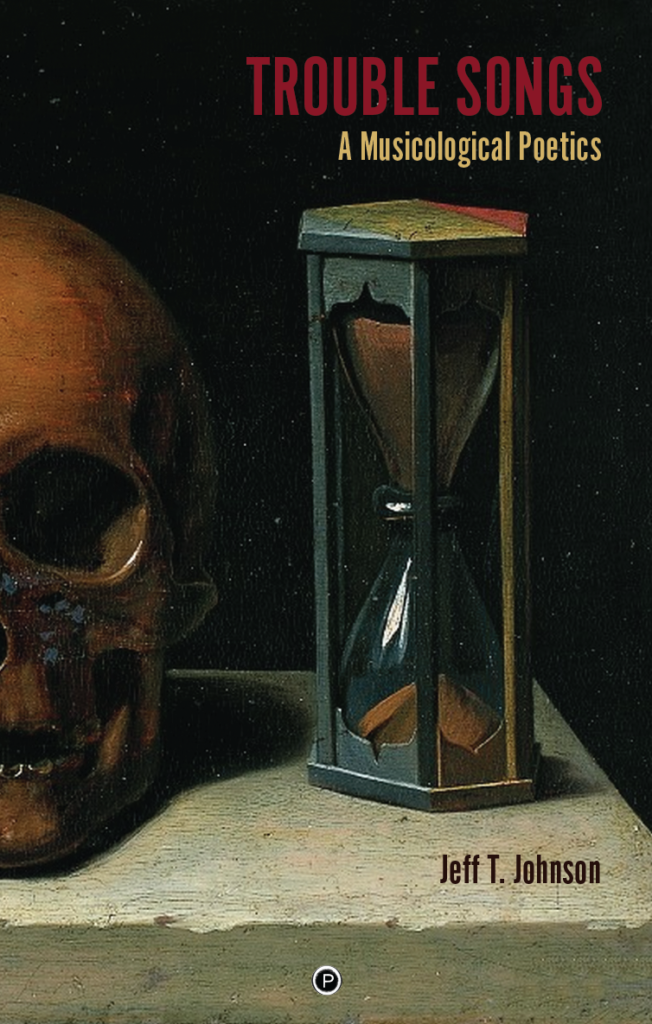Trouble Songs is a hybrid serial work that tracks the appearance of the word “trouble” in 20th- and 21st-century American music. It reads (and sings) songs and poems, with reference to cultural events ranging from the death of a pop singer to the growth of popular resistance movements. The trouble singer invokes the word “trouble” in place of actual trouble—the song is a spell that conjures trouble (from bad luck and disaffection to infidelity, impotence, destitution, and the specter of death) in a temporary form that can be dis-spelled, if only for the length of the song. Singer and song also open a critical space for making trouble, for stirring the heart and mind. This space is a disjunction in time (and a superimposition of events) where singer and listener collaborate on meaning (un/)making as they temporarily transform trouble.
Listen to Jeff T. Johnson Read about the Trouble of Morrissey’s Music Here!
Trouble Songs enacts its poetics with the use of footnote and body text as modular, contiguous, and porous fields of writing and imagination, a corollary for overlapping singer/listener roles. In effect, the footnotes sing along with (and trouble) each chapter, providing chorus and counterpoint to these Trouble Songs, as the compositional horizon between body and notes rises and falls. These cultural investigations suggest that the way we sing about trouble, and the way we receive those songs and cultural transmissions, says much about what preoccupies us spiritually and intellectually—what moves us and disturbs us, brings us together even as we keep some things to ourselves.



3 thoughts on “Trouble Songs: A Musicological Poetics”